Search Results
Showing results 1661 to 1680 of 2169

An Interdisciplinary Deer and Human Population Study
Source Institutions
This activity helps the learner answer the question: "What environmental problems arise due to animal and human overpopulation and what might need to be done to combat these problems?" Learners play a

Supermarket Science: The King Sooper Lab
Source Institutions
In this investigation, learners gather information on various food items during a field trip to a local grocery store.

Scavenger Hunt: A Group Collection
Source Institutions
In this activity, learners are divided into teams.
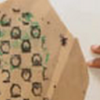
Print Hints
Source Institutions
In this physical sciences activity, learners explore how forensic investigators collect prints from a crime scene. Learners make hand impressions in damp sand and analyze the patterns they observe.

Paper making: a craft and a chemical engineering major
Source Institutions
In this activity, learners explore the question "What is paper?" Learners discover the processes and materials required to make paper while experimenting with different recycled fibers and tools.
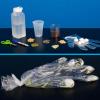
Grow a Garden in a Glove
Source Institutions
Learners use a transparent plastic glove as a container to grow seeds. A different kind of seed can be planted in each finger.
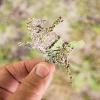
Disappearing Act
Source Institutions
Make a camouflage cut-out animal! Using patterned paper or magazine pictures from around the house, use your craft skills to make a paper animal that blends into its background.
Waves: An Alternative Energy Source
Source Institutions
In this data analysis and environmental science activity, learners evaluate the feasibility of wave energy as a practical alternative energy source using ocean observing system (OOS) buoys.

Taking Its Temperature
Source Institutions
In this activity (pages 5-7), learners investigate the properties of smart materials, which are materials that respond to things that happen around them.
Filling the Time
Source Institutions
Build time sense into the schedule by asking learners to predict what can happen in a certain amount of time: We have 20 minutes before outdoor time. What can you get done?
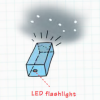
Star Power
Source Institutions
In this activity, learners create a star show and discover how they can prevent light pollution. Using simple materials, learners first design constellation boxes.

Photosynthetic Pictures Are Worth More Than a Thousand Words
Source Institutions
This activity provides an opportunity for learners to observe and examine how carbon dioxide, water, and light produce glucose/starch through a process called photosynthesis.
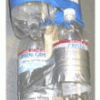
Portable Potable Pressure
Source Institutions
In this activity, learners use plastic water bottles, wood, and water to build an inexpensive and portable tool to demonstrate one atmosphere of pressure at sea level.

What's the Matter
Source Institutions
In this activity, learners identify different classes of matter based on physical properties.
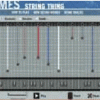
String Thing
Source Institutions
String Thing is an interactive online game in which learners change a virtual string's tension, length, and gauge to create different musical pitches.

Resonant Rings
Source Institutions
Things that are different sizes and stiffness vibrate differently, and in this Exploratorium Science Snack, you'll see how rings of various diameters react to vibration and external forces.
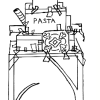
Building with Wonderful Junk
Source Institutions
In this activity (page 4), learners work in groups to plan and build large structures using recyclable materials they have brought from home.

AM in the PM
Source Institutions
In this activity, learners will listen to as many radio stations as possible to discover that AM radio signals can travel many hundreds of miles at night.
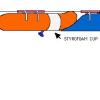
Balloon Staging
Source Institutions
In this activity, learners simulate a multistage rocket launch using party balloons, fishing line, straws, and a plastic cup.

Lotus Leaf Effect
Source Institutions
This is a demonstration about how nature inspires nanotechnology. It is easily adapted into a hands-on activity for an individual or groups.
